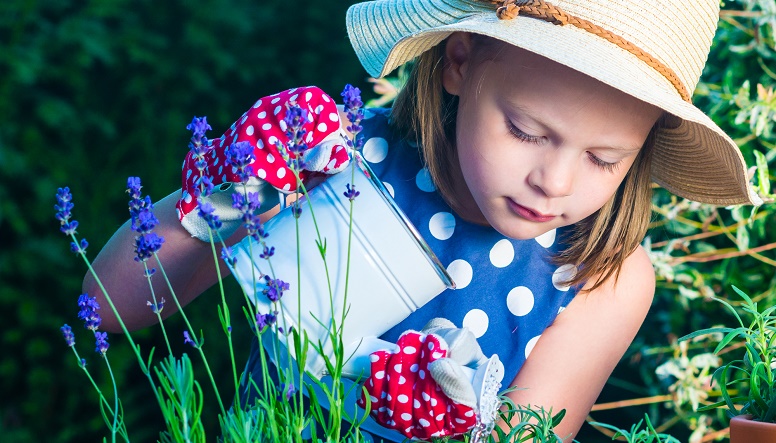PLANT A DINOSAUR GARDEN
Calling T-Rex and friends
For trusted expertise and superior results,
find a landscape professional near you.

Looking for creative yet educational ways to reduce your family's screen time this summer? Try any or all of these hands-on activities to teach kids about the many benefits of plants. They will get outside, learn a little, have fun – and maybe even get a little dirty in the process.
Plant Some Seeds
Most of us remember plopping a seed into a cup filled with dirt in science class or for a Scouting project and eagerly checking on it every day to see whether it sprouted. Some of us were excited when the first bit of green poked through the dirt, while others were undeniably disappointed when, after weeks of persistence, nothing appeared. This activity teaches children of all ages about the life cycle of a plant, responsibility and even a bit about patience.
You will need:
How to do it:
(If you already have a garden space outdoors, you can let children plant the seeds directly in the dirt. Follow instructions on the seed packet and watch for growth!)
Planting a seed and watching it sprout teaches kids how we get new plants from old ones and demonstrates that we need to save the seeds from one vegetable plant in order to grow another crop of food.
Putting the child in charge of watering the seeds and nurturing the growth and development of the plants teaches them responsibility and how to care for the natural world around us. If a plant dies it becomes a lesson in the importance of maintaining a healthy plant food chain.
Related careers for older children to learn more about include:
Learn the Importance of Shade
Show kids the importance of trees and other plants that provide shade. This is most effective on a warm, sunny day.
What to do:
This practical lesson demonstrates how plants help cool the environment naturally and save resources. You can explain:
Related careers for older kids interested in working with trees and landscaping include:
Visit a Garden Center or Plant Nursery
Many garden centers and plant nurseries offer educational classes or tours, and some have staff members who can answer your children's gardening questions.
Before your visit, you and your youngsters should sit down together and decide what types of plants you want. You need to consider the growing conditions on your property. Some of things to keep in mind when choosing the right plants include:
Being able to answer these questions will help you find the right plants for a successful garden. You will be able to tell the nursery staff what you want and describe your growing conditions so they can suggest the best plants for you.
Involving the children in the decisions will get them thinking about what they would like to have in the garden. And they will learn lessons now that will pay off in the future if they continue to garden for pleasure or turn it into a career.
Related nursery careers include:
Teaching kids about the benefits of plants can be fun for the entire family. What better way to spend a summer day than getting outside, digging in the dirt, and enjoying nature? Maybe it will even "plant the seed" for a career as a landscape professional in the future!
We recently updated our Privacy Policy. By continuing to use this website, you acknowledge that our revised Privacy Policy applies.